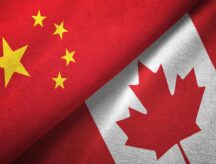Federal, Provincial Ministers Reach Consensus on Increasing Canadian Immigration Levels
Political leaders responsible for immigration issues in Canada have agreed that increasing immigration levels and establishing multi-year targets would help meet labour market needs across the country.
The consensus was reached at a meeting of the Forum of Ministers responsible for Immigration (FMRI), which met in Toronto last week. This FMRI includes members from the federal, provincial, and territorial governments.
Currently, Canada’s annual immigration levels plan for 2017 sets a target of 300,000 new permanent residents for the year. Earlier this summer, federal Minister of Immigration Ahmed Hussen confirmed that this figure would form the new ‘baseline’ for immigration targets under the current federal government. The government had previously alluded to moving to a multi-year plan — instead of the current annual model — in order to provide certainty and help inform long-term planning.
Under the current plan, around 57 percent of new permanent residents settle as economic migrants. This share includes newcomers who apply through one of the economic programs managed under the Express Entry system, as well as skilled workers destined for the province of Quebec and applicants to one of the Provincial Nominee Programs (PNPs). The plan also allows Canadian citizens and permanent residents to sponsor family members, including spouses and common-law partners, while also maintaining Canada’s international obligations and humanitarian tradition with respect to refugee resettlement.
The government’s annual immigration plan is usually presented to Parliament in the preceding fall. It remains to be seen exactly what the next plan may include; the fact that the Ministers have reached a consensus — and publicly affirmed that they have done so — may be a prelude to a multi-year plan.
“Canada has welcomed generations of newcomers who have contributed to Canada’s well-being, economic prosperity, competitiveness, and success as a nation. We are committed to ensuring that newcomers, including refugees, integrate and contribute fully to the Canadian economy and society. We continue to help newcomers find jobs and make lasting connections within their communities,” said Minister Hussen.
Another important agreement to come out of the meeting is the development of a federal-provincial-territorial plan to clarify how settlement priorities are set, and how information is shared among all orders of government. In a statement following the meeting, Immigration, Refugees and Citizenship Canada (IRCC) stated that enhanced collaboration across governments is needed to support the delivery of high-quality settlement services and successful outcomes for all newcomers.
Ian Wishart, Manitoba Minister of Education and Training and FMRI provincial-territorial co-chair, spoke of a shared commitment to “maintaining an open dialogue and working together to achieve our shared immigration objectives in building a stronger, more prosperous and united Canada.”
Finally, the Ministers discussed the promotion of Francophone immigration to communities outside Quebec with the goal of increasing Francophone immigration. Currently, some federal initiatives support that goal. Last June, IRCC changed the Express Entry Comprehensive Ranking System (CRS) so that Francophone candidates could be awarded additional points. The federal government also recently launched a temporary work stream within the International Mobility Program called Mobilité Francophone, making it easier for employers outside Quebec to hire French-speaking skilled workers.
In addition, Canada’s most populated province, Ontario, offers a French-Speaking Skilled Worker Stream, aligned with the Express Entry system, for candidates with ability in French and English.
The FMRI also discussed a pan-Canadian approach to dealing with the current arrival of asylum seekers into Canada through irregular means (i.e. not through official border crossings). This approach would include enhanced intergovernmental collaboration to support orderly migration and scenarios planning, while protecting Canada’s border and the safety and security of Canadians.
To find out if you are eligible to immigrate to Canada permanently, fill out a free online assessment form.
© 2017 CICNews All Rights Reserved
- Do you need Canadian immigration assistance? Contact the Contact Cohen Immigration Law firm by completing our form
- Send us your feedback or your non-legal assistance questions by emailing us at media@canadavisa.com






